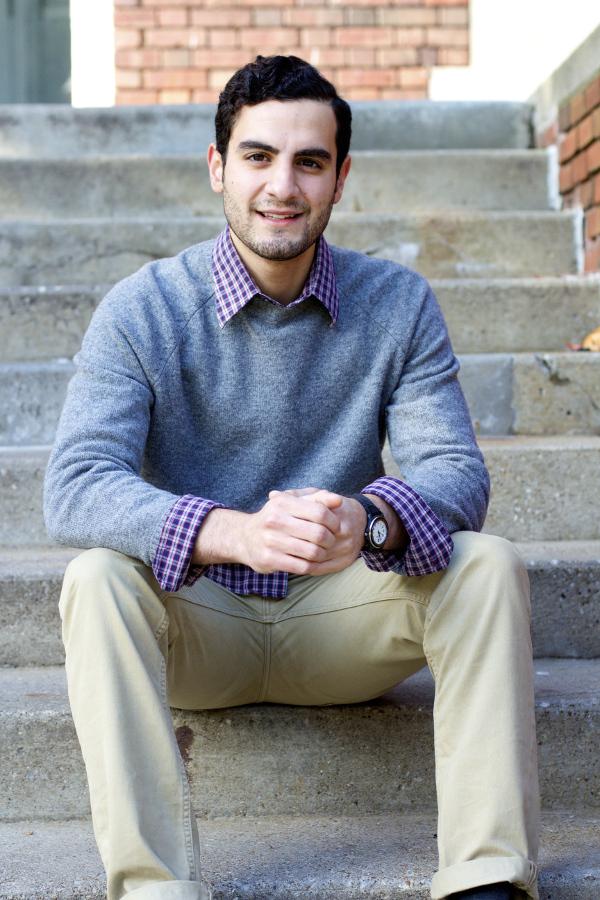Taking food slowly
Senior Alexander Razavi invited to attend international food conference
Senior Alexander Razavi works with the Slow Food movement to ensure everyone has access to clean, healthy food.
October 9, 2014
Case Western Reserve University offers a unique approach to cuisine. Walk into the dining hall on any given day, and you will see that locally grown foods take center stage on Bon Appetit’s menu. Senior Alexander Razavi hopes to enhance this approach by educating more people about the bridge between food production and consumption.
Razavi, the founder of the Slow Food chapter at CWRU, will attend an international conference in Turin, Italy from Oct. 23 to 27 as a delegate of Slow Food USA. At the conference, he will join delegates from more than 400 other Slow Food chapters to meet food producers, activists, and advocates from the global community who are as passionate as he is about improving the food system.
“Slow Food as an entity is really about making people aware about how our relationship with food goes beyond simply eating,” said Razavi. “There’s a cultural relationship, there’s social, environmental relationships that are very important.”
According to their website, the underlying goal of Slow Food is to ensure that everyone has access to “good, clean and fair food.”
Razavi believes that Bon Appetit does a decent job of serving the objective of Slow Food, but he also thinks that just providing food to the university isn’t enough.
“We’d like to extend this conversation so when students leave Case after their four years here, they become citizens that embody this ideal image for protecting biodiversity, protecting practices that are not destroying our earth,” he said.
Razavi founded CWRU’s Slow Food chapter in January of 2013 after taking a SAGES course called the Future of Food.
“I had always been interested in food, and very curious from the nutritional point of view my whole life,” he said. “By having a Slow Food chapter at Case, we’re taking our university to a global network.”
The Slow Food movement is present in over 150 countries, and is a global initiative to make healthy local foods more prevalent and accessible.
“There’s this paradox,” said Razavi. “You have a lot of people who are eating a lot, and we have a problem with obesity, but we also have a lot of people who don’t have access [to food]. And then at the same time, we’re having trouble finding ways to grow food that is sustainable and that can meet our needs.”
Razavi believes that Cleveland has a unique and progressive food culture that encourages the consumption of local foods and provides a framework for Slow Food concepts.
“Using cities like Cleveland as a platform or a model of change for the food system is ideal,” said Razavi. “Integrating Slow Food ideals not only in the Case dining halls, but also the surrounding community can be a platform for national policy change.”
After graduating from CWRU, Razavi plans to attend medical school, combining science, medicine and public health to shape his career.
“You really can’t talk about food without talking about the environment, and you can’t talk about health without talking about food,” said Razavi. He added that his main goal as a physician would be to bring food initiatives to the forefront.
“It’s not necessarily telling your patients how to eat, what to eat everyday from a nutritional aspect,” said Razavi. “What we also need to instill in them are these concepts. Let them know that local food is available for them to buy. It’s not that we don’t have enough local, organic food to feed people, it’s that not enough of it is being purchased.”



